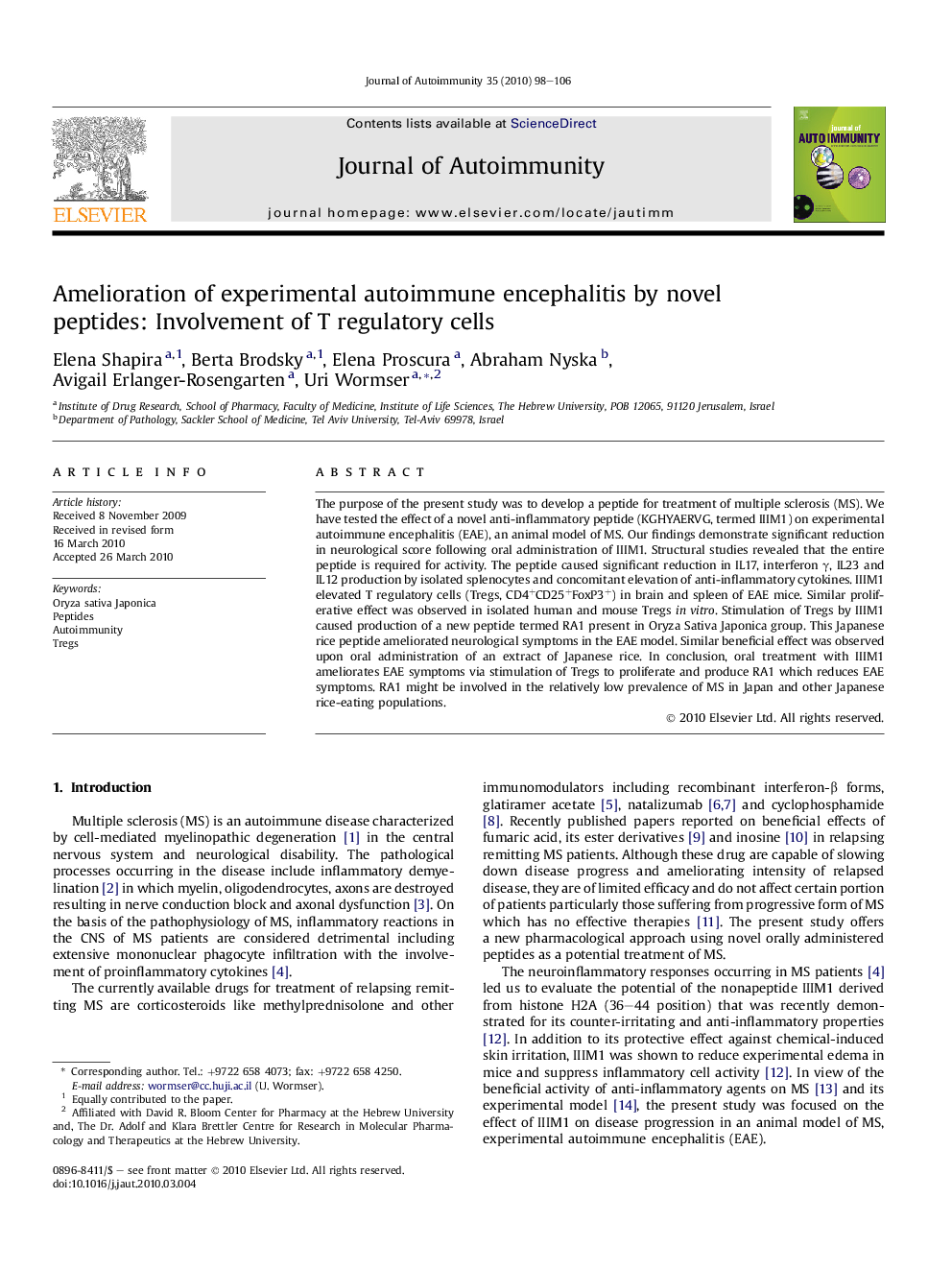| Article ID | Journal | Published Year | Pages | File Type |
|---|---|---|---|---|
| 3368260 | Journal of Autoimmunity | 2010 | 9 Pages |
The purpose of the present study was to develop a peptide for treatment of multiple sclerosis (MS). We have tested the effect of a novel anti-inflammatory peptide (KGHYAERVG, termed IIIM1) on experimental autoimmune encephalitis (EAE), an animal model of MS. Our findings demonstrate significant reduction in neurological score following oral administration of IIIM1. Structural studies revealed that the entire peptide is required for activity. The peptide caused significant reduction in IL17, interferon γ, IL23 and IL12 production by isolated splenocytes and concomitant elevation of anti-inflammatory cytokines. IIIM1 elevated T regulatory cells (Tregs, CD4+CD25+FoxP3+) in brain and spleen of EAE mice. Similar proliferative effect was observed in isolated human and mouse Tregs in vitro. Stimulation of Tregs by IIIM1 caused production of a new peptide termed RA1 present in Oryza Sativa Japonica group. This Japanese rice peptide ameliorated neurological symptoms in the EAE model. Similar beneficial effect was observed upon oral administration of an extract of Japanese rice. In conclusion, oral treatment with IIIM1 ameliorates EAE symptoms via stimulation of Tregs to proliferate and produce RA1 which reduces EAE symptoms. RA1 might be involved in the relatively low prevalence of MS in Japan and other Japanese rice-eating populations.
